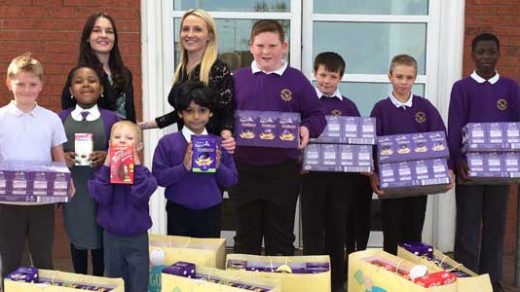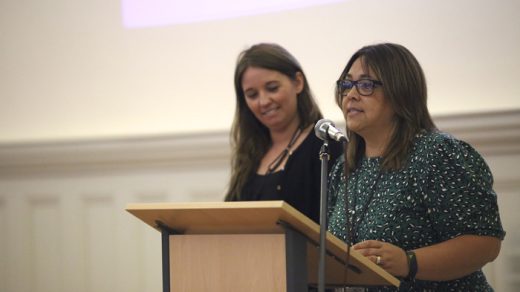Change is coming

It’s an interesting time in PSHE education as Health Education (primary and secondary), Relationships Education (primary) and Relationships and Sex Education (secondary) all become statutory in September 2020.
A lack of guidance for schools in the past has resulted in some children missing out on vital information about staying safe and healthy, growing up, and relationships.
School Improvement Liverpool’s (SIL) PSHE specialist, Julie McCann, who is also a member of the PSHE Association Advisory Council, has developed successful training and support in all areas of PSHE education.
Educate caught up with Julie to learn how schools can make sure they’re ready for the changes arriving at the start of the 2020/21 academic year.
By Lawrence Saunders
This is the first new government guidance on relationships and sex education in schools for almost two decades. Would you say it’s long overdue?
Yes, the world is a different place to the one it was 19 years ago, and the new legislation reflects this. Many of the issues we see in the news are addressed through the PSHE curriculum, including gender equality, mental health, extremism and online safety. Effective PSHE lessons support pupils to negotiate both the challenges and opportunities of an ever-changing world.
MPs from different political parties have heeded the appeals from pupils, families, teachers and professional bodies for an up-to-date and inclusive curriculm.
From September 2020, what will primary/secondary school children need to be taught?
Primary pupils will be provided with the foundations needed to develop the skills, attitudes and knowledge to build respectful, positive and safe relationships.
Many primary schools already choose to teach sex education in a sensitive, age appropriate way, so that children understand the physical changes they will experience, and have the correct vocabulary to ask for help if necessary.
At secondary, Relationships and Sex Education (RSE) continues to support pupils’ personal and social development exploring personal identity, characteristics of positive relationships, emotional resilience and how to resist peer pressure. Included in this will be the teaching about intimate relationships, sex and sexual health.
How will LGBT issues be addressed?
RSE should be fully inclusive and LGBT issues should be fully integrated into the PSHE curriculum rather than delivered as standalone lessons.
This helps develop the key attitudes of respect and tolerance. Avoiding assumptions and stereotypes helps support, acknowledge and celebrate the diversity of humankind.
How will the needs of SEND pupils be catered for?
All aspects of PSHE education must be accessible to all pupils. Children with SEND are sometimes the most vulnerable to exploitation, so really need to know how to challenge or where to ask for help.
It may be necessary to tailor content and teaching to the specific needs of pupils, but this shouldn’t mean avoiding topics that feel too tricky or sensitive.
Does the guidance cover how children can stay safe online?
Yes, primary pupils should be taught about the benefits and the risks of the internet, how excessive time on devices can impact on their wellbeing, why there are age restrictions on social media/games, how online abuse and bullying can take place, and the importance of keeping personal information private.
Secondary aged pupils should be taught about the similarities and differences between the online world and the physical world, the impact of over-reliance on online relationships, the risks related to online gambling, how advertising is targeted at them, and how to identify/report/seek support for harmful online behaviours.
Will schools with a religious character be able include reflections on faith teachings as part of the lessons?
Schools must deliver the statutory curriculum to all pupils, but should take into account the religious background of all pupils and handle sensitive topics appropriately. Positive relationships between the school and local faith communities will create a constructive context for the teaching of PSHE.
In accordance with fundamental British values, it would be appropriate to teach that society is diverse and everyone should be treated with respect.
Do academies and free schools have to adhere to the new guidance?
The guidance applies to all schools whether maintained or independent, including academies and free schools.
Can parents withdraw their children from the lessons?
Parents do have the right to request that their child be withdrawn from some or all of sex education delivered as part of statutory RSE until their child is 15 years old; however the majority of parents are very supportive of schools and also want to play a part in educating their children at home.
Good communication between school and home increases confidence in the nature and purpose of the curriculum. Any requests to withdraw should be discussed with the headteacher and schools should document this process. Parents cannot withdraw pupils from any aspect of sex education covered through the science curriculum.
Can schools begin the relevant teaching in September 2019 if they wish?
Most schools are already doing a terrific job of teaching whole-school PSHE and Education Secretary Damian Hinds stated that those already covering health and relationships education successfully should continue to do so.
These changes are about ‘up levelling’ and that all children are receiving an entitlement to this vital area of education.
PSHE should be taught as a progressive, spiral curriculum with adequate timetabling and well-trained teachers. The sooner schools implement this, the better.
What can SIL do to help schools get ready for the changes?
We can support schools in all aspects of PSHE education, through a range of training courses, briefings, in-school support and of course via our annual Northern PSHE Conference taking place in November.
This year’s focus is unsurprisingly ‘Countdown to statutory status: intent, implementation and impact’ and we’re delighted to be welcoming Jono Baggley, the CEO of the PSHE Association and Lucy Emmerson, director of the Sex Education Forum as keynote speakers.
For further information visit: https://www.schoolimprovementliverpool.co.uk/pshe-info
TOP TIPS
• Teach PSHE as a progressive, spiral curriculum
• Tailor content & teaching to the specific needs of pupils
• The curriculum must be accessible to all pupils & fully inclusive
• Handle sensitive topics appropriately
• Good communication with families increases confidence in curriculum



